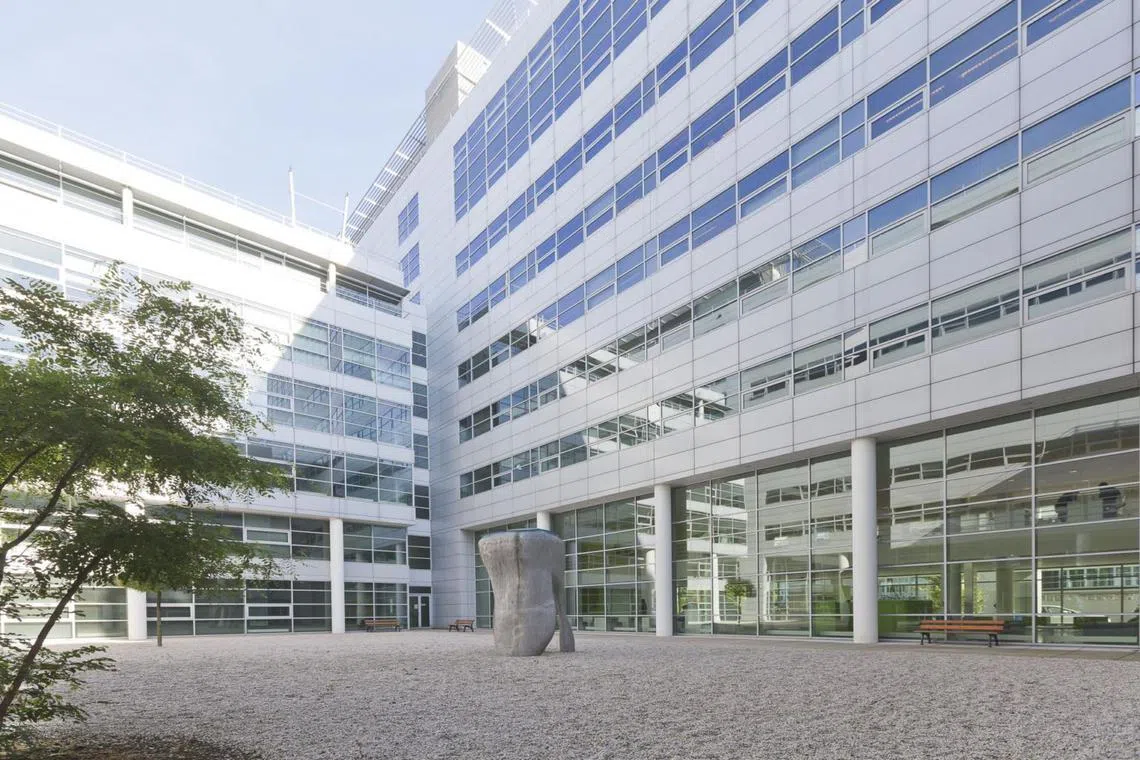Trolls hit the Global Anti-Scam Summit
Sign up now: Get ST's newsletters delivered to your inbox

The event is being held at The Hague Security Delta on Nov 9 and 10.
PHOTO: THE HAGUE SECURITY DELTA/FACEBOOK
SINGAPORE - The Global Anti-Scam Summit in the Netherlands was targeted by trolls on the first day on Wednesday.
The event, which is being held at The Hague Security Delta on Nov 9 and 10, had a rocky start when the fire alarm in the building went off.
Participants were evacuated, but returned about half an hour later after it was established that it was a false alarm.
About an hour later, the summit, which is also being streamed live on Zoom, was targeted by a troll user who spammed racist vulgarities in the chat.
The user, named “Jane Foster”, was able to access the stream for a few minutes before being removed by the event’s administrator, who apologised for the inconvenience.
Two hours later, the event suffered another setback after the stream was hacked.
At the time, Mr Jack Whittaker, a PhD candidate at the University of Surrey, was giving a presentation on why Internet users get scammed.
An unknown user had been able to take over the stream and began drawing Nazi and communist symbols on Mr Whittaker’s presentation.
Mr Whittaker told the audience that he did not support communism.
The unknown user then drew a Russian flag on the stream, before the organisers stepped in and said they would be adjourning the session for a few minutes to resolve the issue.
The presentation resumed after about 10 minutes.
The summit, which is in its third year, is organised by the Global Anti-Scam Alliance and brings together researchers, cyber-security experts and anti-scam agencies.
The previous two iterations had been entirely virtual, and this is the first time the summit is being held in a hybrid format with participants from around the world.
Aside from being targeted by malicious trolls, some participants were also lured into a harmless ruse to teach them to be wary.
Singapore-based cyber-security company Group-IB conducted a fake scam during the event, targeting 100 participants at the summit by using fake LinkedIn accounts to reach out to them.
The participants were told they had been selected by the organisers to take part in a lucky draw and were sent a link that asked for their personal details.
During his presentation on Wednesday, Mr Dmitry Tiunkin, Group-IB’s head of digital risk protection, revealed that 35 of the participants had clicked the fake link.
Of these, 15 had completed the fake form and submitted their personal details.
Upon submission, the “victims” were taken to an error page.
Two of the “victims” still furnished additional information while attempting to submit a tech support report because of the supposed technical error.
Mr Tiunkin said the lesson for those who fell for the ruse was to be sceptical.
He said: “Please, be suspicious.”



